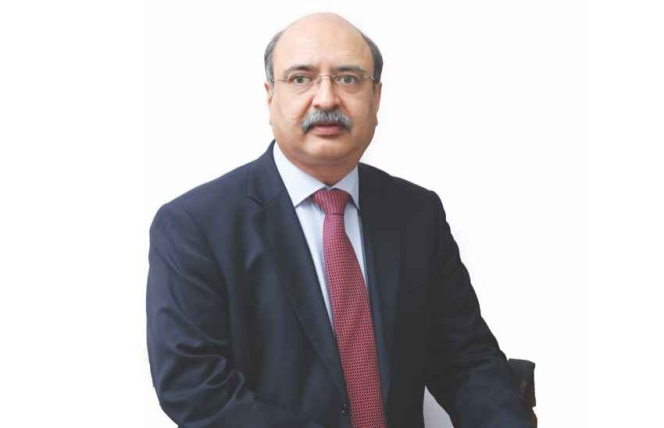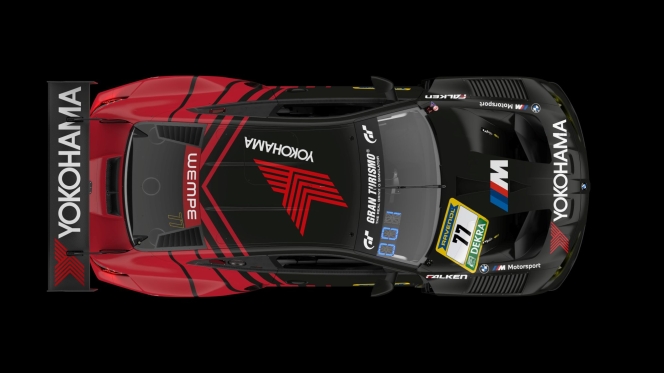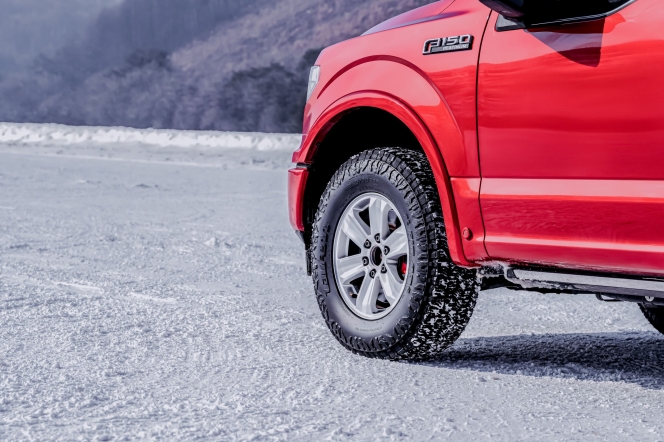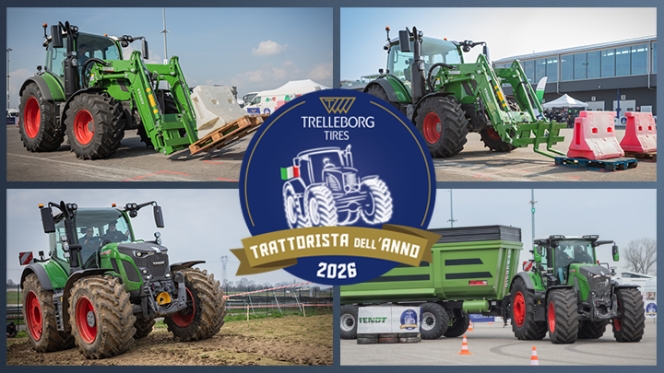
First of all the negative growth had contracted sharply in the second quarter. Pandemic had brought the economy to a grinding halt in the first quarter and the economy collapsed by 24%, arguably the worst contraction in modern history. The contraction eased to 7.5% in the second quarter much less than the 9-11% projected by rating agencies and the analysts. More than that, several economic indicators pointed towards a turnaround. Be it GST collections, sales of vehicles, industrial output or generation of e-way bills - all regained lost ground in the months of Oct and Nov’20, and some even surpassed the pre-pandemic levels.
It is also evident that corporate India has responded favourably to the Government’s stimulus measures. During the second quarter, sequential recovery from the first one was visible across sectors as the lockdown restrictions eased. Some sectors were even able to bounce back to pre-COVID levels and post revenue growth on an annual basis, confirms an ICRA report.
In this context, the performance of tyre industry offers interesting insights. As the process of unlock commenced and economic activities gathered momentum, tyre industry, though badly badgered during the lockdown, worked incessantly, braving odds, to catalyse the economic momentum. Tyre production in India was up 17% in Sept’20 in comparison to Sept’19 levels. The production of Truck & Bus tyres, often celebrated as the wheels of the economy went up by significant 39% in Sept against the year ago period.
For years, the tyre industry has been asking for policy enablers to enhance exports from the country. Government has shown political will and has taken some far-reaching policy measures in aid of the industry having appreciated the pain areas coming in the way of its full blossoming.
The industry has responded to these policy initiatives in equal measure. Notwithstanding disruption in international trade following COVID-19 pandemic and protectionist stance being adopted by countries, Indian tyre industry managed to touch a figure of nearly Rs 6000 crore in exports in the first half of the ongoing fiscal year. Impressive export performance in the second quarter compensated for the sharp drop of 23% in tyre exports experienced in Q1 bringing the overall decline down to 7% in the first half of current fiscal.
Having fallen to a low of 26 thousand units of exports in the month of April this year in view of the lockdown, Truck & Bus Radial (TBR) tyre exports have been on their way up and reached 1.85 lakh units in Sept, the highest ever monthly exports in the category so far.
The recovery in Passenger Car Radial tyres has been rather sterling. From 9 thousand units of exports in April, PCR tyre exports touched a figure of nearly 2 lakh tyres in Sept, again a historic high for the category. The scenario is no different in case of Motorcycle tyre exports. The month of Sept recorded exports of over 2.5 lakh units, a feat rarely achieved so far.
Farm/ Agri tyre exports from India have witnessed an impressive double digit growth in the first half of FY21 notwithstanding the lockdown. The month of Sept'20 witnessed exports of 3.9 lakh units of Agri tyres, one of the highest marks ever achieved. Moreover, the tyre exports from India have been to some of the discerning markets in the world. US and Germany are the dominant markets for Indian manufactured Farm/Agri tyres accounting for over 30% share. The US has emerged as a major recipient of TBR tyres from India. More than one-third of TBR tyre exports from India were destined for the US during the first half of the current fiscal year..
Tyre industry may provide just one of the glimpses of India’s manufacturing prowess and its ability to rise to the occasion. Recently speaking at a conclave of country's management leaders organised by All India Management Association, RC Bhargava, Maruti Suzuki India Chairman, emphatically stated that India has the capability to become a lower cost producer than China if the industry and the government work together. He rightly argued that the only objective of government policies has to be to increase the competitiveness of Indian industry..
It is hoped that the process of revival of the economy will gather momentum despite the lurking fear of disruptions caused by COVID-19. Here is wishing everyone a very Happy and Safe 2021 .May the trials and tribulations cease in the New Year.
- Yokohama Rubber
- Yokohama ADVAN Tyres
- Nürburgring 24-Hour Race
- Nürburgring Langstrecken-Serie
- BMW M Motorsport
Yokohama Becomes BMW M Motorsport’s Official Tyre Partner For 2026 Nürburgring Events
- By TT News
- March 03, 2026

The Yokohama Rubber Co., Ltd., has entered into a new agreement to serve as the official tyre supplier for BMW M Motorsport, the division responsible for the brand's global racing endeavours. This collaboration will debut at the prestigious Nürburgring 24-Hour Race and throughout the Nürburgring Langstrecken-Serie in 2026.
This renewed partnership revives a historical connection between the two companies, who previously worked together on the same iconic circuit from 1980 to 1990. During that initial decade-long stint, their combined efforts secured two overall victories. After an interval of nearly four decades, they are reuniting for the current season to compete in the premier SP9 class, fielding the BMW M4 GT3 EVO. For this campaign, Yokohama will equip the vehicle with its high-performance ADVAN racing tyres, with the shared objective of capturing another overall win.

Beyond its tie-up with the BMW team, Yokohama Rubber continues its longstanding commitment to the Nürburgring. It will provide its tyres to numerous leading teams contesting both the endurance series and the 24-hour event this season. The company is focused on achieving an overall championship victory for a vehicle equipped with its YOKOHAMA brand tyres.
Franciscus Van Meel, CEO, BMW M GmbH, said, “We are excited to welcome YOKOHAMA as Official Partner of BMW M Motorsport for our Nürburgring programme. YOKOHAMA’s technical expertise and motorsport passion strengthen our drive for maximum performance and precision. Their support allows our team to focus fully on what defines BMW M Motorsport: pushing the limits on every lap. We look forward to a strong endurance season.”
Team: Schubert Motorsport
Class: SP9
Car: BMW M4 GT3 EVO
Tyres:
ADVAN A005 (for dry conditions); Sizes: front 300/680R18, rear 330/710R18
ADVAN A006 (for wet conditions); Sizes: front 300/680R18, rear 320/710R18
Race Schedule (as of date of this release)
March 14 (Sat): NLS Round 1
March 21 (Sat): NLS Round 2
April 11 (Sat): NLS Round 3
April 18 (Sat) –19 (Sun): Nürburgring 24-Hour Race (Qualifiers) , NLS Rounds 4 & 5
May 14 (Thu) –17 (Sun): Nürburgring 24-Hour Race
June 20 (Sat): NLS Round 6
August 1 (Sat): NLS Round 7
September 12 (Sat) –13 (Sun): NLS Rounds 8 & 9
October 10 (Sat): NLS Round 10
Second-Generation Laufenn X FIT AT2 All-Terrain Tyre Launched In US
- By TT News
- March 03, 2026

Hankook Tire has introduced the Laufenn X FIT AT2, a new addition to its all-terrain tyre lineup aimed at drivers who require durability and adaptability without compromising on everyday driving comfort. Positioned as an affordable option, this tyre is engineered to handle a mix of on-road and off-road conditions while delivering long-lasting value.
Building upon the foundation of its predecessor, the X FIT AT2 brings several performance upgrades. It features enhanced traction across varied landscapes, a 15 percent improvement in tread longevity and reliable handling in different weather conditions. The tyre is designed to fit a broad spectrum of light trucks and SUVs, with availability ranging from 15 to 22 inches to accommodate popular vehicle models in the market.
This launch reflects Laufenn’s ongoing strategy to diversify its offerings as it strengthens its presence in over 100 countries. Since its introduction in Europe, the brand has consistently expanded its range for both passenger vehicles and commercial applications, responding to shifting consumer needs. The X FIT AT2 reinforces this direction by providing a balance of rugged capability and composed road manners for those who frequently transition between highways and rougher terrain.
Engineered for resilience, the tyre incorporates a reinforced structure, including select sizes with three-ply sidewalls to resist cuts and impacts. Its tread design features directional and lateral grooves that enhance water dispersion and grip on slippery or loose surfaces. Additional protective elements such as offset shoulder blocks and rim guards help shield against debris and curb damage. A two-step deep sipe pattern promotes uniform wear, contributing to extended usability.
Certified with the Three-Peak Mountain Snowflake symbol, the X FIT AT2 offers dependable performance in dry, wet and snowy winter conditions. It comes with warranty coverage tailored to its sizing, offering 60,000 miles for P-metric versions and 50,000 miles for LT-metric options. With this release, Laufenn continues to round out its portfolio alongside existing lines such as the S FIT, G FIT and I FIT series.
KC Jensen, Vice President – U.S. Passenger Car and Light Truck Sales, Hankook Tire America Corp, said, “The X FIT AT2 represents the next step forward for the Laufenn brand as we continue to deliver practical, dependable solutions for everyday drivers who also want the freedom to explore off-road. Building on the success of the original X FIT AT, this second-generation tyre offers a stronger blend of durability, versatility and everyday comfort at an accessible value.”
Comerio Ercole To Showcase Calendering And Digital Solutions At Two Premier 2026 Trade Fairs
- By TT News
- March 03, 2026

Comerio Ercole is set to make a significant impact on the global stage in 2026 with its participation in two major industry exhibitions. The company will showcase its latest advancements at both Chinaplas 2026 and Tire Technology Expo 2026, highlighting a comprehensive portfolio designed to enhance precision, productivity and sustainability in polymer processing.
At Tire Technology Expo, Comerio Ercole will present integrated systems tailored for the tyre industry, focusing on high-performance rubber calendering and digital intelligence. A flagship solution is the TRIPLE 4-roll calendering unit. Its innovative "S" configuration provides remarkable flexibility by enabling the processing of both textile and steel cord, as well as the production of rubber sheeting, all within a single line. The system’s capability for simultaneous lamination ensures high precision and product stability while minimising defects. Downtime is a critical factor in tyre production, and the patented FASTEEL system directly addresses this. By automating the steel cord change process, it dramatically reduces changeover time from hours to minutes, allowing the line to continue running during preparation and thereby maximising plant availability and operator safety. Following the calendering process, the SUPERCUT system guarantees clean, precise transversal cuts for both steel and textile-reinforced rubber, integrating guillotine and high-speed rotary blades to minimise waste and streamline downstream winding.
Simultaneously, at Chinaplas 2026, taking place in Hall 2.1 at Stand C85, the company will place a strong emphasis on its patented HYDROPLUS concept for PVC and plastic calendering. This technology suite is engineered to deliver micrometric precision and robust process stability through advanced hydraulic controls. Central to this is HYDROGAP, a system that achieves exceptional thickness uniformity with high-resolution gap positioning. Complementing this are HYDROSAFE, which ensures rapid roll separation for ultimate protection, and HYDROTHERM, a feature that intelligently compensates for thermal expansion to maintain precise gap settings during fluctuating operational temperatures.
Beyond mechanical innovation, the company is driving digital transformation with its CELEMETRY and MINERV-AI platforms. CELEMETRY focuses on sustainability by converting production data into actionable insights for environmental reporting and energy optimisation. MINERV-AI captures and standardises operational expertise through artificial intelligence, supporting more effective maintenance protocols, training procedures and overall operational consistency. Through these combined efforts at both exhibitions, Comerio Ercole is demonstrating a holistic approach to advancing the plastics, rubber and tyre industries.
Trelleborg Tires And Fendt Partner For 2026 Tractor Driver Of The Year Event
- By TT News
- March 02, 2026

The seventh edition of Trelleborg Tires’ Tractor Driver of the Year competition took place at the Cremona Circuit in Italy on 28 February 2026, drawing 50 skilled participants from across the nation. Held at a venue renowned for its professional standards, the event has become a fixture in the agricultural calendar, offering a platform for drivers to demonstrate their expertise while experiencing advanced tyre technology in practical scenarios. After a demanding day of challenges, Francesco Coppe emerged victorious, distinguished by his exceptional precision and versatility across the various disciplines.
The competition featured a series of exercises designed to assess core abilities, including manoeuvring, loader operation, reverse driving and trailer handling, culminating in a field regularity test. Throughout these tasks, participants directly observed the benefits of Trelleborg’s ProgressiveTraction technology, which aims to boost traction, reduce soil impact and enhance overall efficiency. This year, Fendt joined as the technical partner, supplying the machinery for the event. The tractors used, such as the Fendl 300 Vario Gen5, 500 Vario Gen4 and 800 Vario Gen5 models introduced in 2025, exemplified how modern agricultural engineering supports operators in achieving high performance with comfort and ease, both on road and in the field.


Daniela Gambatesa, Marketing Manager Italy, Trelleborg Tires, said, “The ‘Tractor Driver of the Year’ once again confirms its position as a landmark event for the agricultural sector: a unique opportunity to celebrate expertise, innovation and professionalism. This 7th edition recorded a remarkable participation of tractor drivers, highlighting the growing importance of the initiative. A key highlight of the event was the new ‘5,000 Hours of Guaranteed Performance’ campaign dedicated to ProgressiveTraction® treads, originally launched in July 2025 and now featuring a customised look for Fendt tractors equipped with VarioDrive technology. This initiative allows us to prove in real working conditions the long-term durability and efficiency of our tyres, offering tangible support to agricultural professionals in their daily operations. The collaboration with Fendt as technical partner further reinforces our shared commitment to excellence, combining advanced technology with high-performing solutions for the industry.”
Silvia Uderzo, Advertising & Sales Promotion Specialist, Fendt Italia, said, “Fendt has believed in the ‘Tractor Driver of the Year’ project since its early editions, reflecting the trust and importance we attribute to this initiative. Taking part again this year represents a valuable opportunity to enhance the skills of tractor drivers and to demonstrate how the technology, performance and comfort of our machines play a decisive role in improving operational efficiency. The partnership with Trelleborg Tires confirms our shared commitment to delivering increasingly high-performing and sustainable solutions to agricultural professionals, combining innovation with close attention to their real operational needs.”







Comments (0)
ADD COMMENT